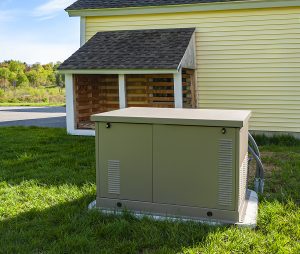The Cost of Installing a Home Generator: What You Should Know
A whole home generator feels like a dream. When the power goes out, the generator will instantly provide reliable backup power, keeping your home powered and lit even during extended outages. Rather than small generators, they can power your whole house, and since they run on natural gas or propane, you won’t need to join the long lines at the gas station. With all the benefits, it seems like a no-brainer to install, but since whole-home generators are designed for durability and longevity, they are a worthwhile investment. If you are considering installing a whole-home generator, it’s important to consider all the associated costs so you can budget effectively and avoid any unpleasant surprises along the way.
Cost of the Generator Itself – What Can You Expect
The costs vary widely depending on many factors, but even at the lowest end, you can expect to spend at least a few thousand dollars for the generator itself, and at the highest end, a whole-home generator can approach or exceed $20,000. Most homeowners can expect to fall somewhere in the middle. Different brands and models have varying costs, so it’s essential to consider both the features available and the reputation for longevity, durability, and reliability. Having a warranty for your generator is important. When choosing a generator brand, your electrician will likely have a preferred brand and be able to guide you through your options. The size of your home, the capacity you need from the generator, and other preferences can also impact the cost.
Getting the Right Permits
Most portable generators don’t require a permit, but installing a whole home generator often does. Some cities and counties require an electrical inspection before issuing a permit for installation, and while this doesn’t always come with a cost, it is a possibility. Your electrician will usually be able to lay out the requirements. Some electricians will handle getting all the necessary paperwork and permitting for you, while others will let you know what needs to be done and allow you to handle it on your own prior to beginning the work.
Hiring an Electrician
Unless you are a licensed and working electrician, you should never attempt to install a generator on your own. Not only will you take risks during the installation process, but you may also find yourself with a generator that doesn’t work as it should. Always, always hire an electrician to handle the installation. Some will charge a flat fee, while others charge an hourly rate. Before hiring an electrician, talk to them about the full project. Not only can they handle the installation of the unit, wiring, and transfer switch, but they can also inform you if any additional changes to your system are necessary before starting the process.
Setting Up Your Fuel Source
Once the electrical work is completed, you will need to set up the fuel source and contract with the fuel supplier. Natural gas and propane are the most common choices, and you can set up automatic delivery to ensure that your generator is always ready to go before a storm. If you don’t have an existing propane or natural gas line, there will be a setup cost.
Anything Else?
Whole-home generators should undergo regular maintenance to make sure they are functioning properly. You should plan to have your generator serviced every six months or so. The inspections are relatively inexpensive, and any necessary repairs typically range from $300 to $1000, depending on the issue. If you ever notice a problem with your generator, make sure to take care of it quickly to keep the repair cost effective. The longer you wait, the more expensive it can get.
Are Whole Home Generators Worth the Investment?
Portable generators are a more cost-effective option. They can provide basic power when the electricity goes out and get you through the worst of an outage. However, they do have some drawbacks. Portable generators run on gasoline, which means you’ll have to obtain and store gas containers, a process that can be both inconvenient and risky. You’ll need to manually start the generator in the dark, typically by using mulitple extension cords.
And most importantly, most portable generators can’t power your whole home. You can make sure you have the essentials, but they can’t power your HVAC systems. Whole home generators have many distinct advantages. They protect your appliances, prevent basement flooding by ensuring that all systems are continuously working, and help maintain comfort during outages. A whole-home generator is fully automatic and doesn’t require extension cords or gasoline to operate. Because it’s wired directly to both your home and the fuel source, your home will power up within seconds after an outage, even if you aren’t home. If you value your home and the comfort of your family and are facing frequent power outages, a whole-home generator is well worth the investment.
A whole-home generator is an investment, but if you’re going to invest, you need to make sure you do it right. Get the right size generator for your home, make sure you have all the work done by professionals, and make sure you have all the correct paperwork completed. When you’re ready for a whole-home generator, talk to a quality electrician about making sure you are well prepared for the entire process.
Investing in a whole-home generator is a big decision—make sure it’s done right. Contact Oakwood Electric & Generator for experienced guidance, professional installation, and reliable service every step of the way.